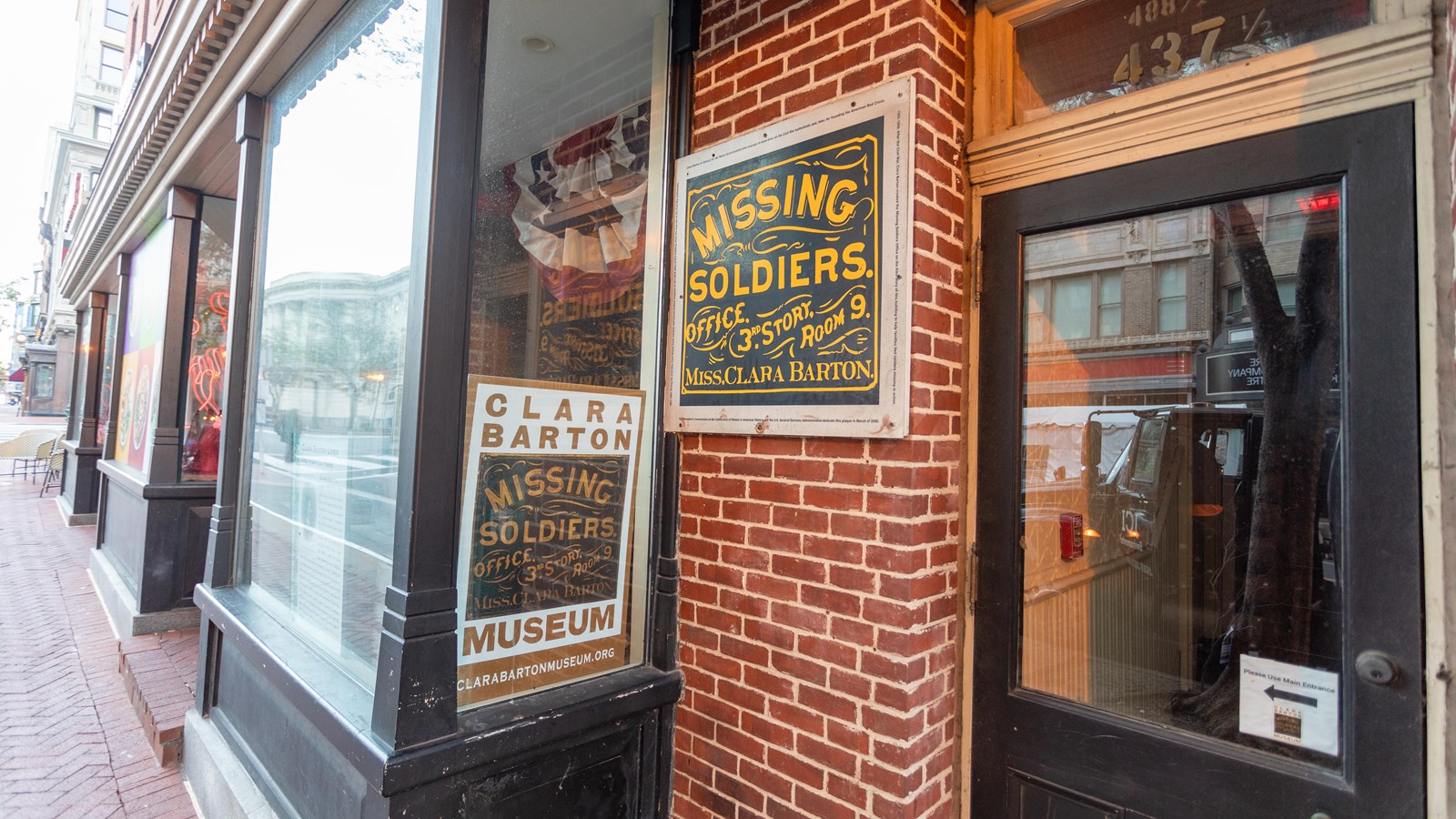Last updated: December 4, 2025
Place
Clara Barton Missing Soldiers Office Museum

NPS / Claire Hassler
Historical/Interpretive Information/Exhibits
During the Civil War there was no official system in place to document missing or dead soldiers. As the war ended Clara Barton, the "Angel of the Battlefield" who had achieved fame as a nurse during the war, took it upon herself to fill this void. She began to receive letters from family members trying to find out the fate of their loved ones who had not returned home. Each of these letters led to a painstaking process of researching the whereabouts of these missing soldiers and to respond to the family members' inquiries.
In June of 1865 a young clerk named Dorence Atwater contacted Barton and requested copies of her lists of missing soldiers. Atwater had been a prisoner at Andersonville and had been paroled to work in the hospital, where he diligently maintained a copy of the death records. Ecstatic, Barton contacted Secretary of War Edwin M. Stanton and asked to accompany the US Army's expedition to Andersonville to identify the graves there.
At Andersonville in July and August of 1865, Atwater and Barton poured through the letters she had received, and began to search for these missing soldiers in the Andersonville Death Register and captured hospital records. While laborers worked to erect headboards in the cemetery, Barton wrote dozens of letters informing families that their loved ones had died at Andersonville. At the end of the expedition, Barton was given the honor of raising the American flag for the first time over the recently established Andersonville National Cemetery.
After returning from Andersonville, Barton set up the Missing Soldier's Office in Washington in 1865. She hired numerous clerks, including Dorence Atwater, to respond to the more than 60,000 letters that she received. By the time the Missing Soldiers Office closed in 1867, Barton and her staff had identified more than 20,000 missing soldiers, including nearly 13,000 who had died at Andersonville Prison.
Because of her fame as a nurse, she received much of the credit for the work of the Missing Soldiers Office and the Andersonville expedition. In a post war speaking series she was hailed as the "Heroine of Andersonville" and toured the nation displaying artifacts that she had collected at the prison site and lectured on the sufferings of the prisoners. She was even inducted as an honorary member of the Andersonville Survivor's Association, and the army's expedition to Andersonville to identify the graves quickly became known as Barton's expedition, even though she had only accompanied the previously planned endeavor and had worked primarily writing letters - not identifying graves as has often been claimed.
Barton's greatest contribution to the Andersonville story is through her work in the Missing Soldiers Office and her support of Dorence Atwater. Atwater was court-martialed and jailed in the fall of 1865 related to a dispute over the ownership of the Andersonville Death Register. It was through Barton's efforts that he was finally released and she then supported his publication of the Death Register. Barton is often mistakenly given credit for identifying the graves at Andersonville. However, she deserves a great deal of credit for her efforts to account for the missing soldiers, both at Andersonville and across countless battlefields.
